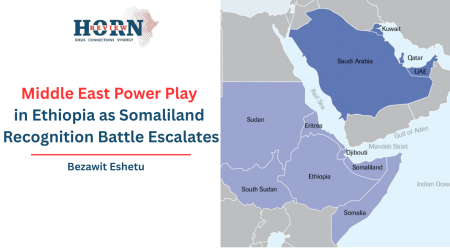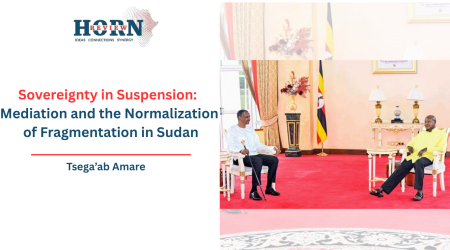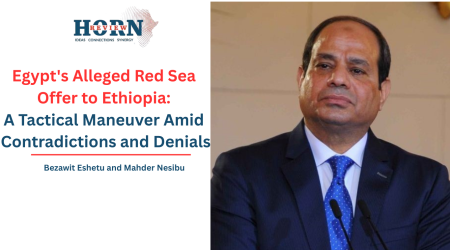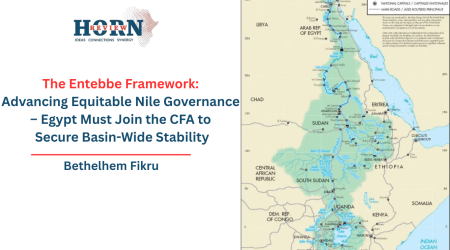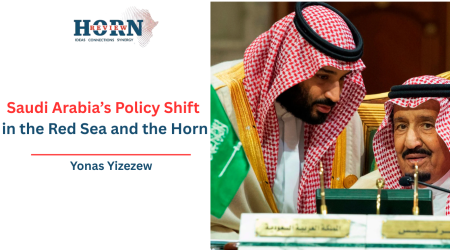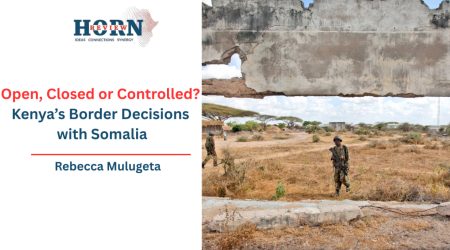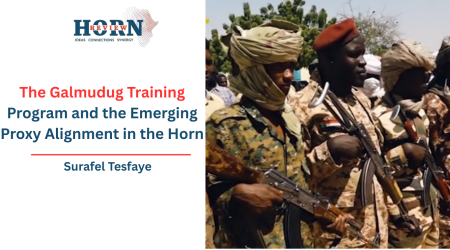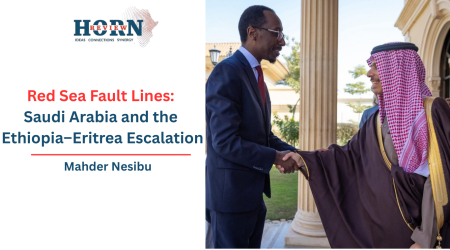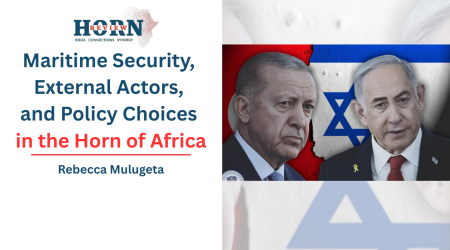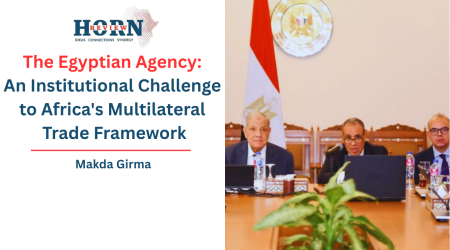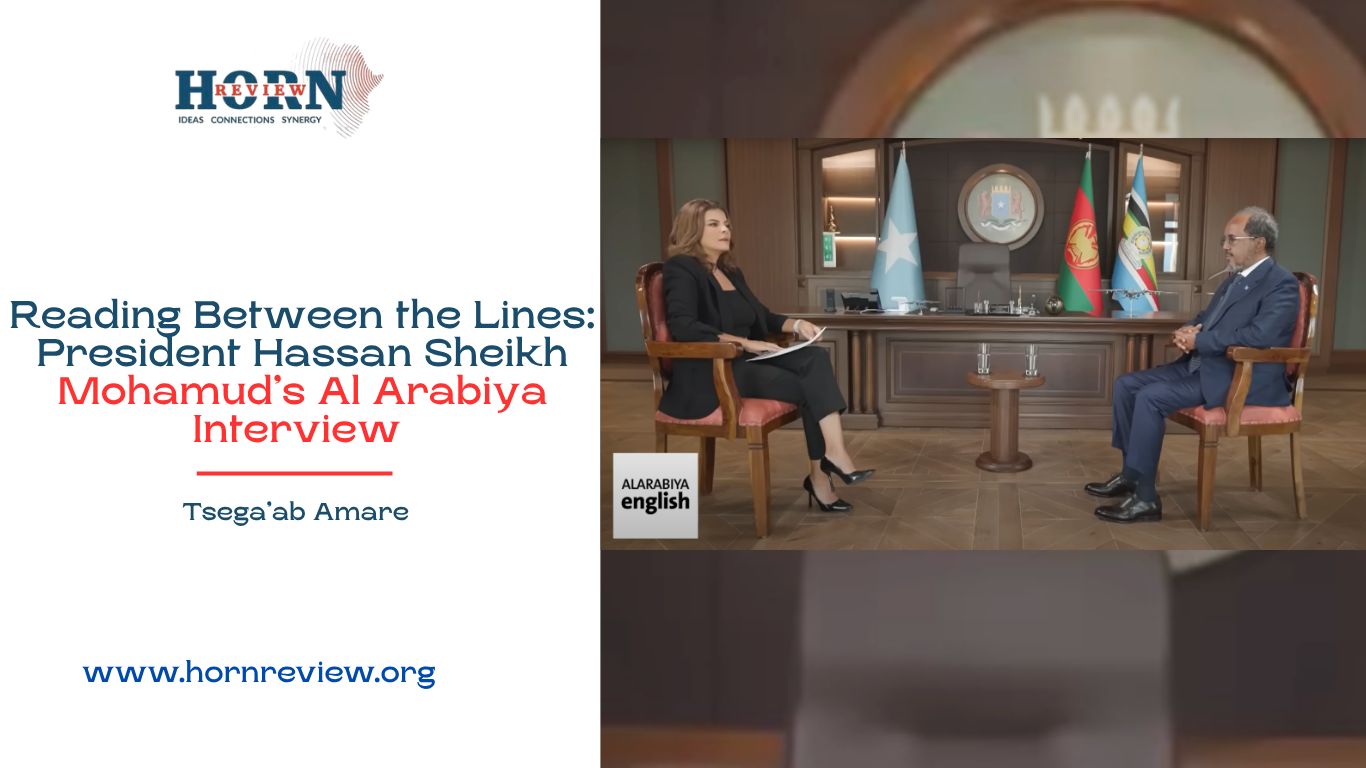
18
Oct
Reading Between the Lines: President Hassan Sheikh Mohamud’s Al Arabiya Interview
The recent high-level interview with Somalia’s President Hassan Sheikh Mohamud on Al Arabiya English reveals a deliberate and well-calibrated diplomatic posture designed to maximize international and regional support while preserving strict control over the country’s strategic direction.
In his recent remarks, President Hassan Sheikh Mohamud indicated convergence with Ethiopia on immediate security threats and energy cooperation. Yet, profound divergence persists on core geopolitical questions, especially on maritime access and security alignment.
Somalia maintains transactional cooperation with Ethiopia on existential issues, particularly counter-terrorism and cross-border stability. President Mohamud described the Grand Ethiopian Renaissance Dam (GERD) as a “successful project” capable of generating 5,000 megawatts of power, noting that energy is “a prerequisite for any development.” This public endorsement not only acknowledges the dam’s developmental significance but also reflects Mogadishu’s pragmatic acceptance of Ethiopia’s infrastructural leadership in the region.
Both governments share an immediate interest in militarily, ideologically, and financially degrading Al-Shabaab and ISIS. In this collective endeavor, Ethiopia’s role as a regional security guarantor is indispensable—its stability, military capacity, and cross-border coordination remain central to ensuring durable peace in Somalia and the wider Horn of Africa.
Yet beneath this surface cooperation lies an emerging structural tension that challenges Ethiopia’s national imperatives. The relationship is increasingly strained by two interlinked issues that cut to the heart of Ethiopia’s security doctrine and regional strategy.
First, President Mohamud directly countered Prime Minister Abiy Ahmed’s framing of Red Sea access as a “matter of national survival.” He emphasized that Ethiopia must follow “universally accepted standards” in seeking maritime access and issued a categorical assertion that Somalia “will never stand for any violation of the sovereignty of any country in the world.”
Somalia’s strong rhetorical defense of territorial integrity serves as a pre-emptive diplomatic offensive. By consistently invoking terms such as “violation” and “non-use of force,” Mogadishu is actively framing Ethiopia’s maritime ambition—especially its 2024 Memorandum of Understanding (MoU) with Somaliland—as an act of regional aggression.
President Mohamud underscored Somalia’s strategic awareness of the maritime sphere, asserting that although “Somalia is not geographically part of the Red Sea, the waterway concerns our economy and our security, and we have a say in it.” This statement reaffirms Mogadishu’s intent to shape the regional discourse over Red Sea security.
Second, Mogadishu has deepened its military partnership with Egypt, Ethiopia’s principal hydro-political rival. The FGS confirmed the signing of a military cooperation protocol in August 2024, granting Egypt participation in the AUSSOM between 2025 and 2029. Recent developments indicate that this agreement has now materialized through concrete troop deployments and arms transfers, with Egypt committing forces to AUSSOM, delivering weaponry such as anti-aircraft guns and artillery, and conducting reconnaissance to identify operational zones.
This decision of introducing a rival military intelligence footprint into a shared operational space was justified by Mogadishu purely on sovereignty grounds. Ethiopia has strongly objected to these moves, warning that the arrival of Egyptian forces and equipment in Somalia threatens its national security and sovereignty. Concerns are also mounting that the influx of weaponry could expand the black market and ultimately find its way into the hands of Al-Shabaab and other armed groups.
Rather than a mere assertion of sovereignty, Somalia’s embrace of Egyptian military support appears to reflect a broader balancing act against Ethiopia, one that risks deepening inter-state rivalries and inviting greater external intervention into an already fragile regional order.
The integrated deployment of Egyptian military units within AUSSOM poses significant implications for Ethiopia’s security architecture. It allows Cairo to project influence directly into the Horn, gain access to FGS political and intelligence environments, and potentially monitor Ethiopian troop operations within AU frameworks. This is not merely a symbolic alignment, rather it constitutes a tangible Egyptian foothold in Ethiopia’s immediate security perimeter.
President Mohamud’s description of Egypt as a “very strategic partner” with “a very, very long historic relationship” reveals the prioritization of Arab partnerships within Somalia’s external orientation. While maintaining restored ties with Addis Ababa, the FGS characterizes its relationship with Ethiopia as merely “neighborly,” underscoring the asymmetry between proximity and preference.
This structural tilt effectively dilutes Ethiopia’s diplomatic leverage, as Cairo’s growing operational role reshapes Somalia’s military and intelligence ecosystem. Ethiopia’s influence, rooted in geographic interdependence and shared threats, is now offset by Egypt’s deepening engagement and narrative alignment with Mogadishu’s sovereignty discourse.
Parallel to these diplomatic maneuvers, the FGS is consolidating domestic authority through institutional and territorial integration. The government is preparing for its first direct election since 1969, with an anticipated participation of three to four million voters. This process, beyond its symbolic democratic significance, represents an attempt to translate wartime legitimacy into institutional endurance.
Crucially, Mogadishu’s support for the unionist administration in the Sool, Sanaag, and Cayn (SSC) regions signals a deliberate bid to reshape the internal balance of power. President Mohamud acknowledged that the area has a “very limited chance to go back to Somaliland,” framing unionist consolidation as the only viable governance option. Strategically undermining Somaliland’s stability.
Despite assertive foreign policy initiatives, Somalia’s internal threat landscape remains severe. President Mohamud emphasized that many Al-Shabaab fighters are young adults indoctrinated since 2007–2008, having never encountered open media or civic life. This entrenched ideological conditioning underscores the need for a long-term ideological and economic counteroffensive, not merely military containment.
While international backing is “very, very good… but not enough yet,” the FGS remains heavily reliant on external partners, creating entry points for competing influences. Saudi Arabia’s growing role in training Somali security leadership and sharing counter-terror intelligence is particularly notable. This evolving security partnership provides the Kingdom a quiet but enduring stake in Somalia’s security architecture, adding another dimension to Mogadishu’s multi-vector strategy.
Thus, while the FGS outwardly asserts independence, it is simultaneously weaving a web of dependency among Arab and Gulf partners that could shape the ideological and military orientation of the future Somali state.
Somalia’s election as a non-permanent member of the United Nations Security Council (UNSC) has elevated its diplomatic profile. The FGS now positions itself as a representative of three overlapping blocs: the African Union, the Arab League, and the Organization of Islamic Cooperation (OIC).
This “triple mandate” allows Mogadishu to balance African and Arab priorities but also means that in moments of divergence, Somalia may lean toward the Arab consensus. Such positioning provides the FGS with a platform to internationalize domestic disputes, including the Somaliland question, while subtly undermining Ethiopian policy objectives within multilateral forums. Mogadishu’s UNSC seat thus becomes both a diplomatic asset and a geopolitical instrument, amplifying Somalia’s narrative on sovereignty and regional equity.
As dynamics around Somalia continue to shift, Ethiopia must rethink its approach, broadening its focus from narrow security coordination to a more holistic engagement that weaves together political, economic, and developmental strands.
Three priorities stand out.
First, Ethiopia should use its influence within the AU Peace and Security Council (PSC) to address the intelligence risks created by Egypt’s participation in AUSSOM, while also keeping open, direct lines of communication with Somali National Army (SNA) units operating outside the AU framework to preserve trust and prevent miscalculations.
Second, with Mogadishu now backing SSC-Khaatumo as a counterweight to Somaliland, Addis Ababa should reinforce its strategic partnership with Hargeisa. The stability of SSC has now become central to the security logic underpinning its search for port access and must be protected accordingly.
President Mohamud’s rhetoric reflects a Somalia eager to shed the label of fragility and reassert itself as a sovereign, multi-aligned actor in the Horn of Africa. Yet this quest for autonomy also exposes Somalia to the push and pull of competing regional and global agendas.
For Ethiopia, the path forward lies not in confrontation but in smart, measured engagement that is grounded in economic interdependence, intelligence resilience, and diplomatic foresight.
By Tsega’ab Amare, Researcher, Horn Review
Disclaimer:
This analysis is primarily based on President Hassan Sheikh Mohamud’s recent interview with Al Arabiya English, reflecting interpretive insights on its regional and strategic implications.
Al Arabiya English: Somalia’s President on Ethiopia’s Renaissance Dam & Regional Stability. https://youtu.be/5hG-rUBcwd8

